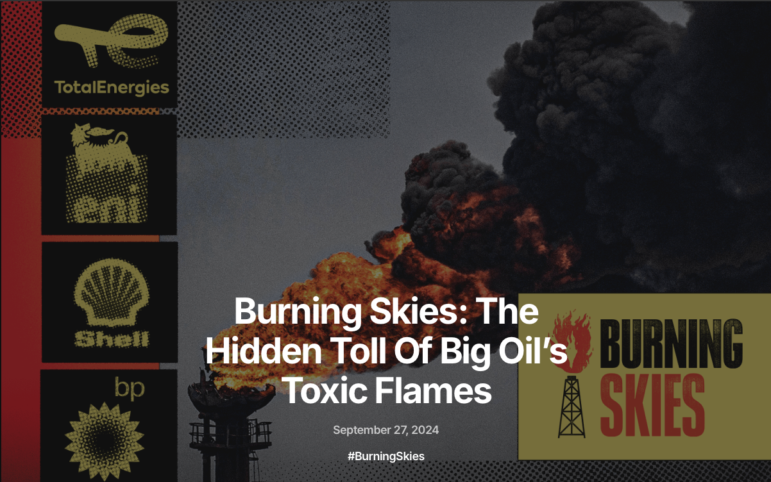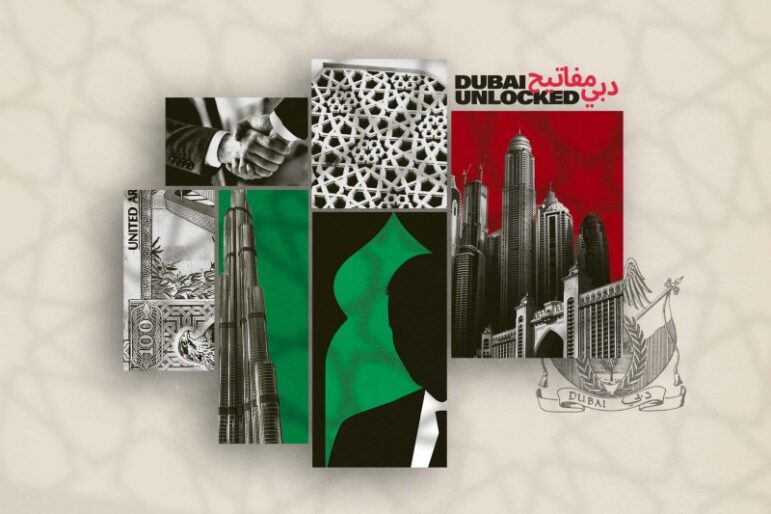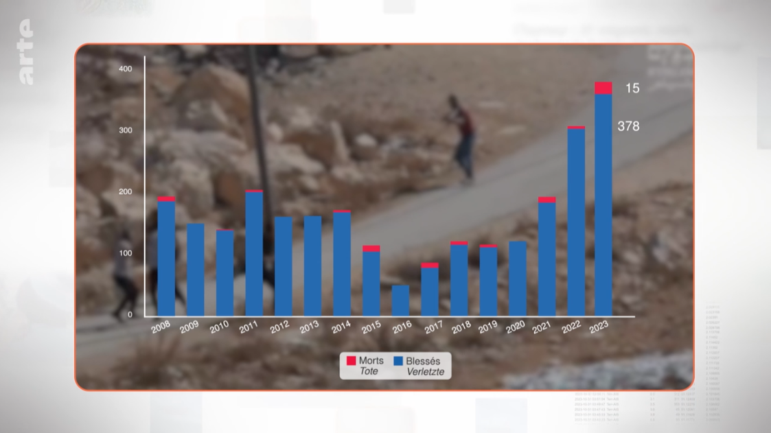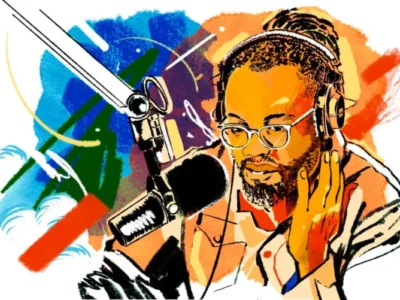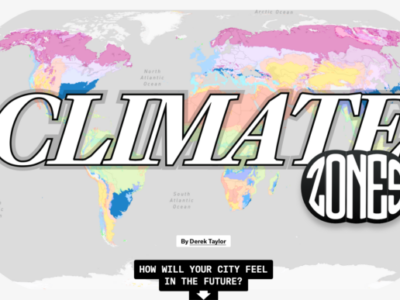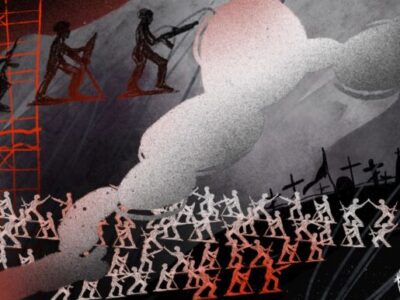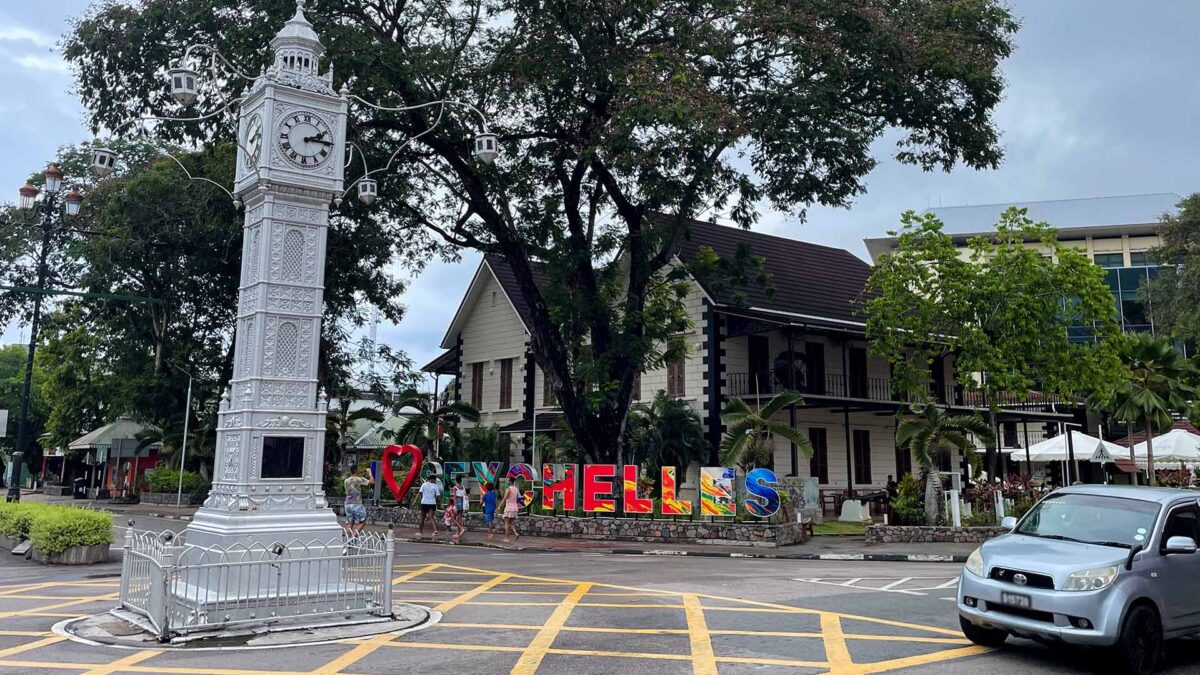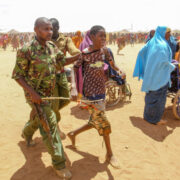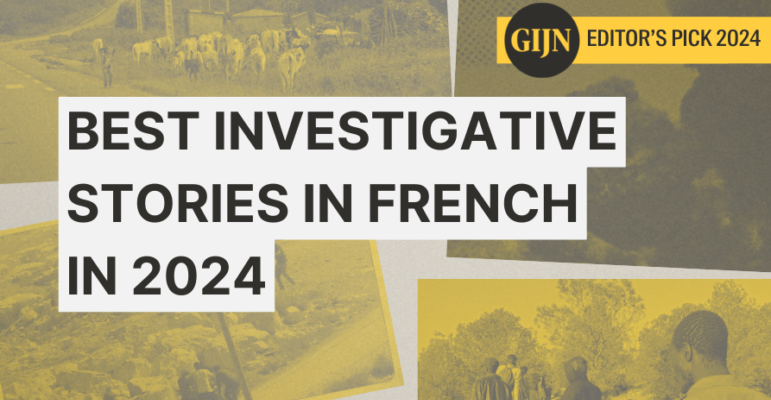
The investigations that caught our eye this year display the diversity that exists in the world of Francophone watchdog reporting. We have seen stories in a wide variety of formats, so much so that it seems that digital, video, and podcast investigations are now the norm, while print seems to be losing its dominance.
There has also been huge variety in the topics that outlets are choosing to cover: from social issues to financial and environmental misconduct, and from investigations that dig into historical events to those that delve into conflicts abroad.
The use of data as well as open source tools and techniques is now widespread, while cross-border and collaborative journalism is becoming increasingly successful at revealing pertinent local stories. Below we feature eight stories that most impressed our French-speaking team this year. Bonne lecture!
North Africa — Deportation ‘Desert Dumps’
This year-long investigation by a team of more than 30 journalists from Enass, Inkyfada, Le Monde, Lighthouse Reports, and other international media organizations uncovered arrest and deportation practices carried out by three North African countries, which the reporting team claim is being backed and financed by the European Union. The migrants were turned away and abandoned in remote desert or mountainous areas of Morocco, Mauritania, and Tunisia to prevent them from reaching the Mediterranean Sea. According to the investigation, this left a vulnerable population “without any assistance, water or food, leaving them at risk of kidnapping, extortion, torture, sexual violence, and, in the worst instances, death.”
While few images of these operations exist, the journalists were able to analyze dozens of photographs, videos, and testimonials to document these operations and geolocate several of them. Funding these operations is money from the EU, where migration has become a heated political issue in recent years. Since 2015, Morocco, Mauritania, and Tunisia have received more than €400 million (US$425 million) for border management. “European states don’t want to get their hands dirty. So they subcontract human rights violations to third countries,” said one law professor interviewed by Le Monde.
According to reporters, European officials have consistently denied that funds are being used for projects that violate basic rights, but two senior EU sources said it was “impossible” to fully account for the way in which European funding was ultimately used.
Cote d’Ivoire — Border Investigation Amid Terrorist Threats
In West Africa, the spread of terrorism from the north of the Sahel to the coast in the south has also been accompanied by severe restrictions on press freedom, making it almost impossible for journalists to work independently in many places. Against this backdrop, journalists from Cote d’Ivoire have been able to publish a series of reports from the northern part of the country, an area which has been seriously impacted by terrorism. The reports covered sensitive issues such as cattle rustling, unemployment, the trafficking of fuel, and how the porous nature of borders might contribute to the spread of terrorism and exacerbate other problems.
This five-part series of collaborative reports, in written and podcast format, was led by the Ivorian investigative media site Eburnie Today. Together, the team mobilized — with the support of a partner NGO — 20 reporters who used traditional investigative techniques based on direct contact with sources and field research.
Switzerland — Slave Trade: Hidden Side of Swiss History
“Our Slaves,” the eight-part podcast series by Swiss public service broadcaster RTS, delves into one of the darkest periods in Switzerland’s past, by telling the stories of the the Swiss traders, financiers, soldiers, settlers, workers, and even federal authorities involved in “the abominable traffic” of slaves. The two-year investigation saw journalist Cyril Dépraz travel from Switzerland to the former slave port of Nantes, and to the Brazilian city of Helvécia.
Through archival research and with the insights of historians, the podcast exposed an entire system linked to the economy of slavery. The most powerful moments happen when a historian lists the fragile traces of a life, like the enslaved woman Pauline Dubuisson who died in Switzerland in 1826. Or when a descendant of another enslaved woman in Brazil tries to remember her great-great-grandmother, taken from Angola. The podcast could not have been produced even a generation ago because as Bouda Etemad, one of the historians interviewed, pointed out: “No one talked about colonial Switzerland 15 years ago.”
Senegal — Investigating Visa Appointment Deals
In Senegal, the difficulty in applying for a short-term visa to Europe’s Schengen area, the United States, or Canada has created a black market for visa appointments. This situation has even provoked street demonstrations in Dakar and prompted two reporters to embark on an investigation to understand the phenomenon.
By speaking directly to a wide variety of sources, including visa applicants, the intermediaries who offer to help visa applications jump the queue in return for a fee, and French and US consuls, the reporters were able to reveal, for example, how some of the intermediaries were charging up to US$500 just to make an appointment. The reporters also went undercover, posing as visa applicants and soliciting the services of one of the city’s most reputable agencies for these services — a tactic that enabled them to gather first-hand evidence.
Few in-depth local investigations have exposed the obstacles would-be travelers face in such detail, or with such compelling evidence of the costs for those involved.
France — Fall of Abbé Pierre, Humanitarian Priest
When the French priest Abbé Pierre died in 2007 at the age of 94, the left-wing daily newspaper Libération memorialized him as “Saint domicile fixe” on its frontpage, a pun on both the term for the unhoused (“sans domicile fixe”) and his decades-long legacy fighting against homelessness. His iconic status made the release of an independent report — commissioned by the two charities he founded — this past July even more shocking, when it revealed that several women had made credible allegations of sexual assault or harassment against him between 1970 and 2005.
With access to unpublished documents, including a notebook, letters, and personal testimonies, Libération revealed a few weeks after the official report that both the Catholic Church and one of Abbé PIerre’s charities were aware of his predatory behavior for decades. Another major story conducted by Radio France uncovered letters where the priest is labeled as “a very sick man” as early as 1958 by an important clergyman. It also displayed extracts of letters written by Abbé Pierre himself, in which he appears to threaten those who dared to confront him.
As other victims of the cleric came forward, the Catholic Church decided to open its archive without waiting the typical 75 years after death. As for his namesake foundation? It will choose a new name.
Regional — Burning Skies in Africa
The collaborative investigation, Burning Skies, included more than a dozen media sites investigating companies involved in gas flaring around the world. Gas flaring — the process of burning off surplus natural gas associated with oil extraction — can be deeply unpopular amid concerns about the health impact on nearby populations. To arrive at their revelations, the outlets exploited unpublished spatial data, from SkyTruth, and other types of information, combined with first-hand accounts from sources.
This project followed a similar investigation late last year by the Environmental Investigative Forum and its media partners, including InfoCongo in Cameroon, that found gas flaring is happening in hundreds of locations in Africa, all tied to a giant European oil and gas operator. In Cameroon and Gabon, two of the main countries in the Congo Basin, the practice is strictly regulated and reserved only for exceptional situations. The company in question told reporters that it “adheres to all local regulations and the highest international standards.”
United Arab Emirates — Dubai Unlocked
Dubai has become a favorite destination for many of the world’s richest individuals, but it is also a popular safe haven for politically exposed Africans who invest in real estate in the Gulf country’s upmarket neighborhoods. The secrecy surrounding these money flows makes it extremely complicated for journalists. But this year, thanks to a collaboration with the US nonprofit C4ADS, DataCameroon and Inkyfada gained access to a database of foreign investments in Dubai, and spent several months carrying out additional field investigations to provide context on the assets of these individuals.
DataCameroon was able to identify 72 high-profile figures from five Central African countries — Cameroon, Gabon, Chad, the Congo, and the Central African Republic — many of whom own several million dollar properties. In Algeria, a country where the law prohibits citizens from accumulating monetary or financial assets abroad, Twala Info was able to identify hundreds of Algerian residents alleged to have assets in Dubai, including the CEO of a state-owned holding company, a former minister, the son of a former head of a state-owned oil and gas company, and a press tycoon.
West Bank — Unraveling a Strategy of Violence from Afar
Since the October 2023 Hamas terrorist attacks, the world has closely followed the Israeli response in Gaza and Lebanon. But this investigation delves into another facet of the conflict: Israeli settler violence against Palestinians in the West Bank, a territory occupied by Israel since 1967. Journalists report that violence against Palestinians there had reached record levels in 2023, even before the October Hamas attack.
Produced by CAPA for the Franco-German TV channel ARTE, the digital investigative magazine Source used open source databases and authenticated videos posted on social networks to document violent incidents filmed by Palestinian inhabitants and Israeli peace activists. They also geolocated where the alleged abuses took place. The map of these listed attacks matched one documenting the locations of new Israeli outposts in the West Bank. The report details how 26 such settlements were created in 2023 alone — despite it being forbidden under both international and Israeli law.
Sources focused additional coverage on a specific Israeli settler placed under US and European sanctions for his violence against Palestinians.

